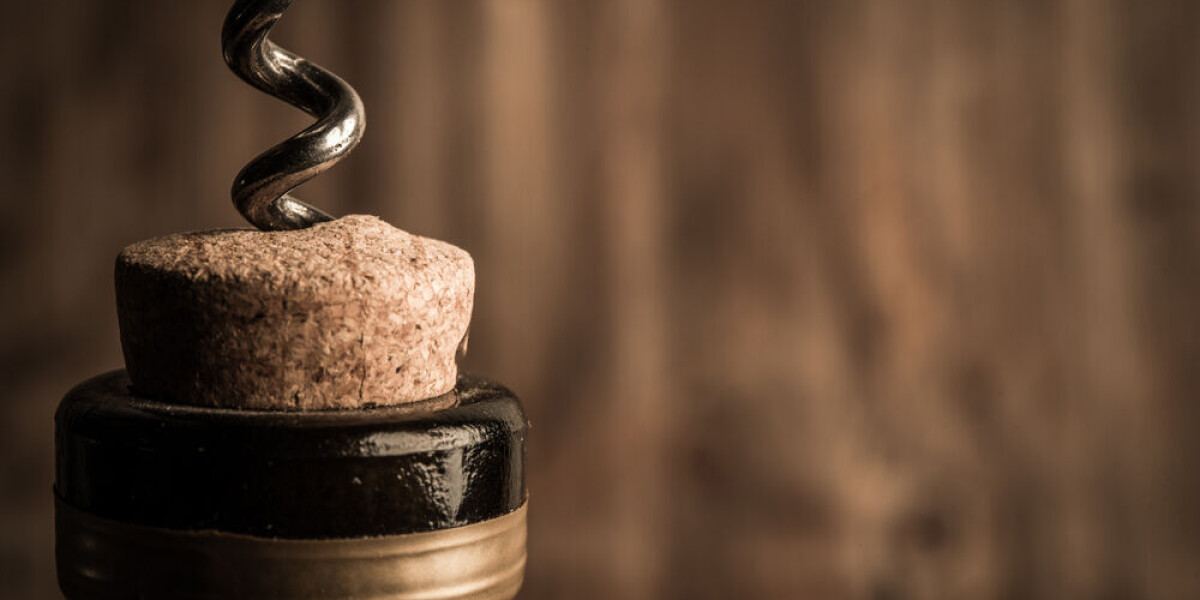
- Select a language for the TTS:
- UK English Female
- UK English Male
- US English Female
- US English Male
- Australian Female
- Australian Male
- Language selected: (auto detect) - EN
Play all audios:
THE PRACTICE IS BECOMING INCREASINGLY POPULAR AS PEOPLE’S BUDGETS ARE SQUEEZED, BUT IT IS IMPORTANT TO BE 100% CLEAR ON THE RESTAURANT’S RULES BEFORE SHOWING UP BOTTLE-IN-HAND READER
QUESTION: CAN I TAKE MY OWN WINE TO A FRENCH RESTAURANT? IS IT ALLOWED, HOW MUCH WOULD THE CORKAGE CHARGE BE, AND HOW WOULD IT WORK? The practice of bringing your own wine to a restaurant
may seem sacrilegious in France, but it is increasingly common as diners look to save money on the sometimes-high wine margins. As a result, some restaurateurs are now offering the _droit au
bouchon_ (right to corkage)’, which is the fee charged to customers who eat at the restaurant but who bring their own bottle. HOW DOES THE ‘DROIT AU BOUCHON’ WORK? Despite its name, it is
not an automatic ‘right’, and restaurants are not required to accept the practice. It is entirely up to the restaurant how they manage the system. It is important to check with the
restaurant in advance, and not expect them just to accept your bottle on arrival. If you do agree to a _droit au bouchon_, it is advisable to set a fee in advance, and be very clear to the
restaurant about how many bottles - and if necessary which kind - of wine you will be bringing. Fees can range from €2 per bottle, to €4-8 in an averagely-good restaurant, up to as much as
€15-20 for a high-end establishment. The fee may also partly depend on the average price of a bottle of wine from the restaurant’s own list. You will want to check if the restaurant will
charge the fee per bottle, per person, per table, or per meal. Typically it will be per bottle, but this is not always the case. It is also important to make sure that you eat well at the
restaurant, to ensure that you are not simply using their premises for drinking. Some restaurants will only allow you to bring in your own bottle if you commit to a minimum spend (per table
or person), or a type of menu. Some may only allow you to bring in your own wine if it is a different variety from those sold at the restaurant, while some may only allow the practice on
certain days, between certain times, or for specific events. Ascertain all of this in advance to avoid misunderstandings or problems, and if possible, try to get some proof of the agreement
(such as an email), in case those at the restaurant that night are unaware of the specifics. WHERE DOES THE _DROIT AU BOUCHON_ COME FROM? The fee is said to date back to the 18th century,
when caterers began to impose it to compensate for the loss of income during any festivities or banquets. At the end of the event, they would count the number of corks, and present the bill.
Later, the practice was lost, especially in France. However, in some English-speaking countries, it became more popular from the 1970s, where it is known as ‘Bring Your Own Bottle (BYOB)’.
In some UK restaurants, it can be a way for the owners to allow the consumption of alcohol on the premises, without the restaurateur themselves needing their own licence. It can also be a
way of attracting customers who do not drink alcohol, perhaps for religious or cultural reasons. But even in the UK, not all restaurants practise it, nor do they have to accept it. READ
MORE: FOUR REASONS WHY LESS WINE IS BEING DRUNK IN FRANCE WHY DO SOME RESTAURANTS ALLOW THE_ DROIT AU BOUCHON_? Some charge the fee not only as a way for the restaurant to compensate for the
non-sale of their own alcohol, but also to pay for the logistical work involved in serving the wine. This includes the opening of bottles, the serving of wine at the table, and supplying
(and cleaning) glasses. Some restaurants may also offer corkage as a way to boost sales on slow days. During the week, customers may drink less, so restaurants can save on buying more of
their own wine, while still welcoming diners who do want to drink. Allowing BYOB is also a way to encourage diners to eat out, while still saving money, especially now as purchasing power is
stretched - restaurants typically sell bottles at between two or three times the price of the wine at a supermarket or wine shop. Having the _droit au bouchon_ can also build customer
loyalty and improve diners’ experience. For example, some customers - especially wine connoisseurs - may also want to bring in a particular bottle of wine for a special occasion, or to
accompany a particular dish. RELATED ARTICLES THE WINE INDUSTRY IS IN CONSTANT EVOLUTION IN FRANCE AND BEYOND FIVE THINGS THEY DON’T TELL YOU… ABOUT WINE IN FRANCE FRANCE IS ONCE AGAIN THE
WORLD’S LARGEST PRODUCER OF WINE





:max_bytes(150000):strip_icc():focal(999x0:1001x2)/federal-way-2000-29bcb11b3b754fe79f68ccebc44c3b17.jpg)


